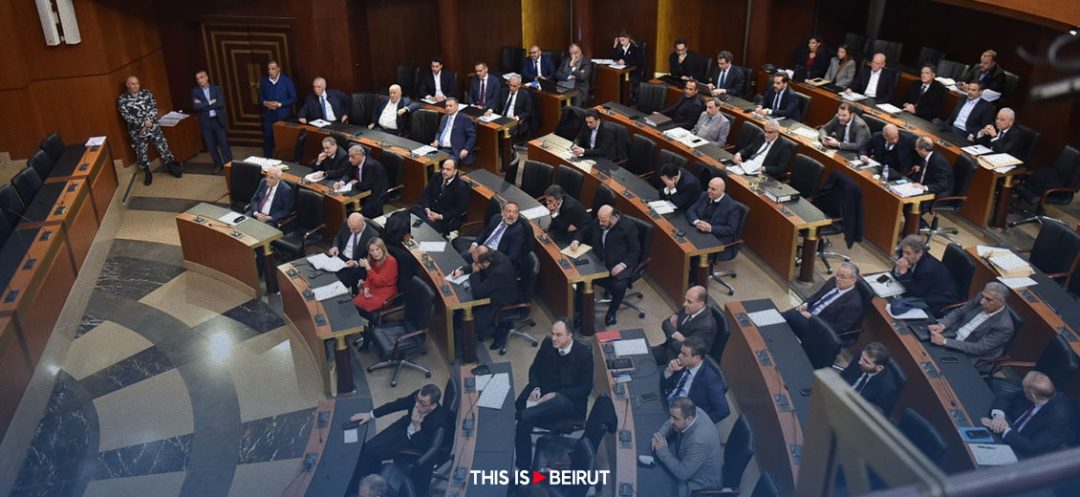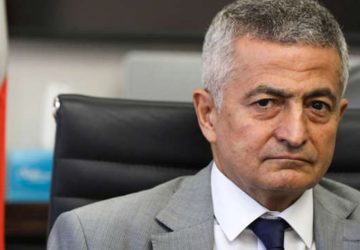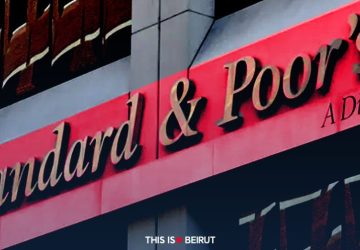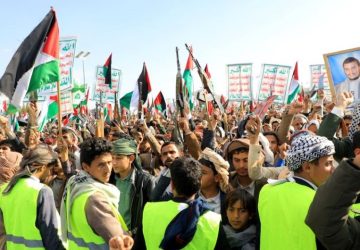At the parliamentary podium, one intervention followed the other on the second day of the budget debate. Around 40 MPs are expected to speak about the 2024 budget bill before the text is examined and voted on, presumably on Thursday evening.
On Thursday morning, 15 parliamentarians took the floor. With the exception of Alain Aoun, a Free Patriotic Movement (FPM) MP and member of the parliamentary Finance and Budget Committee, the MPs who spoke at the podium were from the Lebanese Forces (LF), the Kataeb party and the Progressive Socialist Party (PSP), in addition to independent MPs. They mostly opposed the latest version of the budget, considering it unconstitutional due to the lack of account closure. They also criticized the multiple shortcomings in the text, including the absence of a unified exchange rate, the salaries of public sector employees, the fate of bank deposits and the imprecision of the figures, in addition, of course, to the absence of any short or medium-term economic vision for recovery.
Halima Kaakour, an opposition representative, stated that she would not vote for the budget in the way it is formulated, considering that it “follows a political and economic approach that ignores social reality.” With 77% of so-called regressive taxes in the text, Kaakour emphasized that “taxes are certainly necessary in any country. However, they must be progressive, especially since Lebanon has lost between 8 and 12 billion dollars due to the payment of taxes at the initial rate of 1,500 Lebanese pounds.” It is worth noting that a regressive tax is a tax that “takes a larger percentage of the salaries of low-income individuals than high-income individuals. It opposes a progressive tax, which takes a larger percentage of the wages of high-income individuals.”
Denouncing the project in form and substance, the MP estimated that the text “favors the collapse of the country, prevents any development and protects those in power.” According to her, the solution lies in “developing an economic vision in line with the economic model we aspire to.”
MP Alain Aoun said he was “surprised by the political schizophrenia of some MPs who show support for part of the budget but reject it as a whole, on the pretext that it is not accompanied by a closure of accounts.” Reminiscing about the “courage” of former Prime Minister Saad Hariri in “opening breaches,” Aoun stated, in a tribute to the former head of government who had been fought by his party, “If Saad Hariri were present today, the situation would have been very different.” And he pointed the finger at the current caretaker government of Najib Mikati, which, “Instead of fighting tax evasion, puts pressure on those who are required to pay taxes, thus pushing them to deliberately conceal part of their income or turnover.”
Rejecting the budget draft, Cynthia Zarazir (opposition) and Razi Hajj (LF) formulated the same criticisms as Halima Kaakour. Hajj nicknamed the text the “24-crime budget,” referring to the 24 flaws he claims to have identified.
Comparing it to the 2022 budget, independent MP Oussama Saad called on parliamentarians to “abandon the current text,” asking the government to “review its copy, especially since the text has structural defects.” Saad also emphasized the “need to elect a president,” a position that has been vacant since October 31, 2022, the end of the term of former President Michel Aoun. Paula Yaacoubian agreed. “It is the duty of the MPs to proceed, away from any international and regional political interference,” Saad insisted. He also emphasized the “importance of a defense policy for Lebanon,” commenting on the clashes in the south of the country since the beginning of the war in Gaza on October 7.
MP Bilal Abdallah (PSP) considered it crucial to raise the “basic salary to 20 or 30 million Lebanese pounds,” as well as that of the “benefits of the National Social Security Fund (NSSF).” In this context, he regretted the amendment by the Finance and Budget Committee of Article 94 of the budget draft related to it. Under this article, information exchange between the Ministry of Finance and the NSSF is required so that the calculation of end-of-service benefits can be based on a transparent declaration by employers of their employees’ incomes.
“I will not vote for this budget,” announced Salim Sayegh, MP and Vice-President of the Kataeb party. He justified his decision by the fact that the text “reflects an incorrect reality and lacks any financial perspective.” According to him, “Restoring the legitimacy of the state at all levels is the gateway to any reform.” In this regard, he indicated that “the Constitution does not allow engaging in regular democratic life in the absence of a president.”
During his intervention, MP Faisal Karami from the National Accord parliamentary bloc focused on the situation in South Lebanon, emphasizing the need to take into account “our national interests, but also the dangerous Israeli hysteria when it comes to taking a position.”
Denouncing the absence of an account closure, Karami stated that this “session is supposed to be devoted, according to the Constitution, to the election of a president.” He pleaded for a dialogue to overcome all crises. Denouncing “tax evasion and the unreliability of figures, especially those related to revenues, which are included in the budget,” the MP from Tripoli emphasized the “difficulty of determining the exchange rate for the calculation of taxes, due to the almost total dollarization of the economy.”
For MP Mark Daou from the Coalition for Change parliamentary bloc, “The budget draft reflects the government’s abandonment of its national responsibility.” Not favorable to the text, he called for “convening sessions for the election of a head of state, which will be followed by the formation of a government.” He also pointed out that the government did not provide, in its version, a sufficient budget that would allow municipalities to carry out their work.
Independent MP Adnan Traboulsi rejected “the introduction of taxes that do not take into account the ability of citizens to bear additional burdens” in a context of acute crisis. In this regard, he indicated that “the tax treatment of individual businesses, as presented in the budget, discourages any investment when the country needs it.”
Independent MP Bilal Hosheimi called on “all those who care about Lebanon’s interests to agree on a president to prevent the country from sinking further into the crisis it has been going through since 2019.” Hosheimi described the budget draft as “contrary to the Constitution,” emphasizing the “flagrant difference between the amount of revenues provided for in the text and that transmitted by the Ministry of Finance.”
“Discussing the budget in light of the circumstances in Lebanon is a luxury, and the current version seems better to me than the previous one,” said independent MP Jihad Samad. He added that “the salaries of the public sector must be completely revised.”
Referring to “pressures exerted on parliamentarians,” Nabil Bader, an independent MP, denounced the threat that “if the text is not approved, salaries will no longer be able to be paid to civil servants, and public services will come to a halt. Especially since, if not approved by Parliament, it is the government that will publish the budget by decree-law.”
Stigmatizing clientelism in the country and the government’s refusal to declare a state of emergency in light of the situation in South Lebanon, Firas Hamdan, an opposition MP, said he refused to vote for a budget “contrary to the Constitution,” emphasizing that the priority is the “election of a president.”
The session was adjourned at 2 PM. The fourth session will resume at 6 PM, with the voting process not guaranteed for the day.





